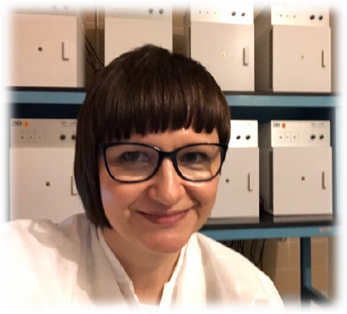
Joanna Dabrowska, PharmD, Ph.D.
(Term: 2022 – 2026)
Associate Professor
Affiliation: Discipline of Cellular ad Molecular Pharmacology and Center for Neurobiology of Stress Resilience and Psychiatric Disorders,
Chicago Medical School, Rosalind Franklin University of Medicine and Science,
North Chicago, IL, USA
email: joanna.dabrowska@rosalindfranklin.edu
Experience in service to scientific communities:
I have served on Editorial Board (as a Reviewing Editor) in Frontiers in Molecular Neuroscience (Frontiers Media) since 2018. Since 2021 I’ve served as a Managing Guest Editor in Neuropharmacology (Elsevier)(Special Issue on ‘Fear, anxiety and PTSD: from cellular mechanisms to translational approaches’) . I serve as ad hoc grant scientific review member for National Institute of Mental Health (NIMH), European Research Council (ERC), and German-Israeli Foundation for Scientific Research and Development, GIF. I served as councilor for Chicago Chapter Society for Neuroscience 2014-2018 and starting in 2022, as a councilor for American Society for Pharmacology and Experimental Therapeutics (ASPET) Great Lakes Chapter. In 2018 I served as a member of International Advisory Committee for 12th Symposium on Catecholamines and Other Neurotransmitters in Stress, Bratislava, Slovakia.
Statement of commitment:
I am committed to serving as a councilor for the International Regulatory Peptide Society by promoting neuropeptide research and the Society in a broader neuroscience community. I strive to advocate for neuropeptide and broader neuroscience research. Particularly, I am committed to advocacy for mental health research,
as well as for a broader accessibility of mental health services. I am committed to training the next generation of young neuroscientists and actively involving them scientifically and administratively (meeting organization, meeting promotion and outreach) in the International Regulatory Peptide Society. I am committed to increasing the presence of women and other underrepresented groups as independent investigators and leaders in the international neuropeptide research society.
Research interests:
My lab investigates cell-type specific effects of neuropeptides such as oxytocin, corticotropin-releasing factor (CRF), enkephalin, and more recently – also vasopressin in the extended amygdala, particularly the bed nucleus of the stria terminalis (BNST) and their unique neuromodulatory roles in the regulation of BNST activity and distinct populations of BNST projection neurons. We utilize in vitro slice electrophysiology combined with optogenetics, neuronal tract tracing and immunofluorescence techniques, and transgenic rat models, to understand the cellular mechanisms of these neuropeptides’
actions in the extended amygdala. Our ultimate goal is to understand their roles in the regulation of defensive behaviors including fear- and anxiety-like behaviors. We utilize fearand anxiety-potentiated startle in male and female rats, to better understand how the BNST and the central amygdala interact via inhibitory and peptidergic projections to process fear
memories of predictable vs. unpredictable threats, and the roles of oxytocin, CRF, and vasopressin receptors in these processes. This is important as exaggerated fear responsiveness to unpredictable threats is one of the core symptoms of stress-induced
neuropsychiatric disorders such as post-traumatic stress disorder (PTSD) . Therefore, understanding cellular effects of these neuropeptides in the extended amygdala have untapped potential as novel therapeutic targets. My research has been continuously supported by the National Institute of Mental Health since 2012.
Secretariat statement on Society participation/contributions
– Member since 7-January-2021, in good standing
– RegPep23 delegate and chair of a symposium

Arpád Dobolyi, Ph.D.
(Term: 2021.01 – 2024)
Head of the Department of Physiology and Neurobiology, Eötvös Loránd University, Budapest, Hungary
Head of the Laboratory of Molecular and Systems Neurobiology, Hungarian Academy of Sciences
http://physiology.elte.hu/index_eng.html email: dobolyi.arpad@ttk.elte.hu
Experience in service to scientific community:
Editorial Board membership: Scientific Reports, Cells, Biologica Futura; President of the following Scientific Conferences: 17th International Conference of the Hungarian Neuroscience Society, Evolution of Sex Roles; Societies: Chair of the Financial Committee of the Hungarian Neuroscience Society, Member of the Neurobiology Committee of the Hungarian Academy of Sciences, Member of the NENS (Network of European Neuroscience Schools) Committee of the Federation of European Neuroscience Societies.
Statement of Commitment:
I have international experience as I spent 5 years in the USA as an NIH fellow before returning to Hungary with a European Fellowship. Ever since I regularly travel not only for science but also for reviews of major European Scientific Grants. My scientific interest includes neuropeptides, behavioral, molecular and systems neuroscience.Now, I would like to use my experience to participate in the Steering Committee of International Regulatory Peptide Society. For that purpose, I confirm in the present letter that I am happy to serve on IRPS council and assume the related responsibilities. My motivation to become a member of IRPS council is to be able to participate in the planning and implementing the decisions, programs and activities approved of by IRPS leadership including for example developing and maintaining programs, biannual conferences, budget-related requests and reports. In addition, my objective is to participate in discussions aimed at building consensus, making decisions and assuring accountability. I am especially devoted to make RegPep meeting the leading conference within the peptide field. Another reason why I would like to become member of the IRPS council is that I can keep IRPS members, as well as related member societies informed about IRPS’s policies and activities via society website. Furthermore, I will regularly attend the IRPS but also other neuroscience conferences and meetings where I can advocate the programs and activities decided by IRPS council. In turn, it also gives me an opportunity to convey the views and needs of the membership to IRPS council.
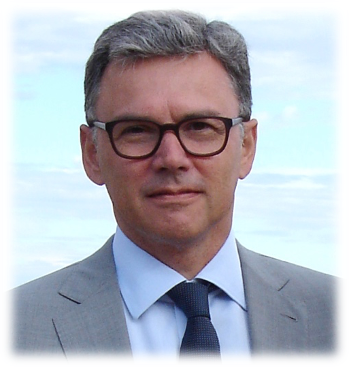
Francesco Ferraguti, M.D.
(Term: 2021.01 – 2024)
Professor of Neuropharmacology, Head of Department.
Department of Pharmacology, Medical University of Innsbruck, Austria
phone: +43-512/9003-71201 email: francesco.ferraguti@i-med.ac.at
ORCID: 0000-0002-3843-5857
Experience in service to scientific community:
Editorial Board Service Scientific Reports, Frontiers in Synaptic Neuroscience. Current President of the Austrian Neuroscience Association; Member of the DANA Alliance.
Statement of Commitment:
I would like to self-nominate for election as Councilor to serve The International Regulatory Peptide Society. While my formal involvement with the IRPS has been very limited, I was impressed with the enthusiasm and engagement of the Society’s members in promoting scientific discussions and dissemination of results on neuropeptide and systems biology research. I would be happy to offer my experience and independent view for the promotion of the IRPS.
My research interest focuses on the neural mechanisms and circuits underlying emotional information processing.
URL https://www.i-med.ac.at/pharmakologie/forschung/research_ferraguti.html
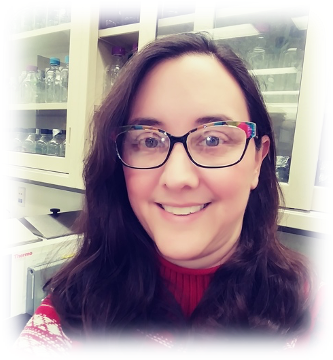
Ki Ann Goosens, Ph.D.
(Term: 2021.01 – 2024)
Associate Professor,
Department of Psychiatry Investigator Friedman Brain Institute Investigator
Center for Affective Neuroscience Icahn School of Medicine at Mount Sinai, New York, USA
Email: ki.goosens@mssm.edu
Research interests:
My laboratory studies how chronic stress elevates the risk of psychiatric disorders and other comorbid diseases, such as metabolic syndrome and obesity. We examine the mechanisms by which neural circuits encode aversive experiences and generate behavior, and study how these are modified by chronic stress. My laboratory has argued that a ghrelin-growth hormone stress axis induces changes in both the brain and periphery after chronic stress. We have also advanced the idea that ghrelin resistance in the brain circuits that process aversion contributes to stress-induced vulnerability to posttraumatic stress disorder. We have demonstrated the importance of acyl-ghrelin to aversive processing and PTSD in both rodent models of the disorder and human patient populations. We are currently examining the role of leptin and LEAP2, two peptides often co-regulated with acyl-ghrelin, in stress-induced vulnerability to PTSD.
Statement of commitment:
I deeply appreciate both the international and interdisciplinary qualities of the IRPS. I believe that
science can make its greatest advances when diverse groups of people collaborate to solve problems; this is seen in my own history of collaborative research with investigators from around the world. I also believe that interdisciplinary science is required to effectively discover new treatments for disease; there is extensive cross- talk between the brain and periphery, and characterizing these complex interactions and uncovering new ways to modulate them requires advances in neuroscience, endocrinology, biology, chemistry, statistics, and other fields. My own research reflects this multi-disciplinary approach.
I would like to further the IRPS as the premiere society for peptide research across the globe, and help develop it as a vehicle for innovating new methods in peptide research, facilitating the dissemination of new tools across labs, and linking peptide dysregulation to human disease. For the IRPS conference, I will work to increase the representation of speakers that study peptides in human disease. I also propose that each conference include an event, perhaps as a satellite meeting, focused on the translation of a specific peptide to the treatment of disease. The peptide of focus would change for each meeting, and should be a peptide is close to bridging a translational gap. Such an event would be designed to bring together researchers to explicitly identify the remaining translational knowledge “gaps”, identify tools that could facilitate translational studies, and generally promote collaboration between individuals united by their common interest in the peptide.
I am deeply interested in improving training for the next generation of leaders in peptide research. To this end, I would develop new opportunities for postdoctoral and graduate trainees to take on leadership roles within the IRPS meetings as well as providing opportunities for trainees to interact with faculty.
I am also interested in continuing to improve the representation of underrepresented groups and women in the IRPS. To this end, I will work towards improving the recognition of women in the regulatory peptide field; of the current 16 Distinguished Members of the IRPS, only two are women.
Finally, I pledge to actively solicit additional ideas from the IRPS membership to make this a society that is useful to all of its members.
The website for my lab can be found at: https://labs.icahn.mssm.edu/goosenslab/

Vito Hernández, MD, PhD
(Term: 2022-2026)
Associate professor
Department of Physiology, School of Medicine
National Autonomous University of México
As a physician, I always wondered about the basic mechanisms that govern the physiology of the body. I had the fortune to incorporate into a group that was supporting and caring about my professional and personal development, and that thought me about the social nature of scientific endeavor. Our research group has contributed with important observations about the anatomy and physiology of peptidergic (vasopressin and PACAP) systems, and their role in stress coping and fomented our collaboration with other research groups around the globe.
Experience in service to scientific community:
I had the pleasure to contribute to the incorporation of IRPS in México as a legally recognized, non-for-profit society. I participated in the drafting of its statutes, and since its incorporation and up to now, I have served as its legal representative. As a councilor I have made my best efforts in supporting the society, taken the duties of being the Webmaster of the RegPep.org portal since its beginnings and designing the webpages for RegPep 22, 23 and 24. I also served as treasurer (2019 – 2021) being in charge of controlling the finances of the IRPS and reporting its activities to the fiscal authorities and to our membership in the general assembly, I feel happy to say that we grew from having red numbers to having a small but significant capital that could be passed to the following treasurer when my term finished.
Statement of commitment:
My compromise with the society also has included being part of the organizing committees of RegPep23 and 24 for which I have taken the task of diffusing the activities of the society and promoting the participation of young scientists of my country so they can have the opportunity to create bridges with renown scientist from around the world. Currently I am an ambassador for ALBA network. I will take as a priority to promote the inclusivity of underrepresented groups in the society.
Secretariat statement on Society participation/contributions
– Founding member since September 25, 2018, in good standing
– Delegate and speaker of RegPep22 and RegPep23
– Main member of Local Organizing Committees for RegPep22 and RegPep23 and main co-responsible for all grants reception legal and financial arrangements for RegPep22 and RegPep23 meetings
– Elected Steering Committee member, RegPep22 – Nov, 2018
– IRPS incorporated statutes co-author
– Co-founder of incorporated IRPS, co-legal-representative and co-holder of IRPS bank account (together with Dr. Limei Zhang)
– IRPS councilor Feb. 2019 – July 2022
– Co-author of IRPS-JNE manifesto published in JNE 2020
– Webmaster of Regpep22, RegPep23 and Society’s website RegPep.org
– Treasurer of the IRPS Feb 2019 – August 2021 (setting bank account, PayPal account).
– Chair of two Young Investigator symposia (RegPep22, RegPep23)
– Applicant for grant to ISN for young investigator symposium in RegPep24 (result pending).
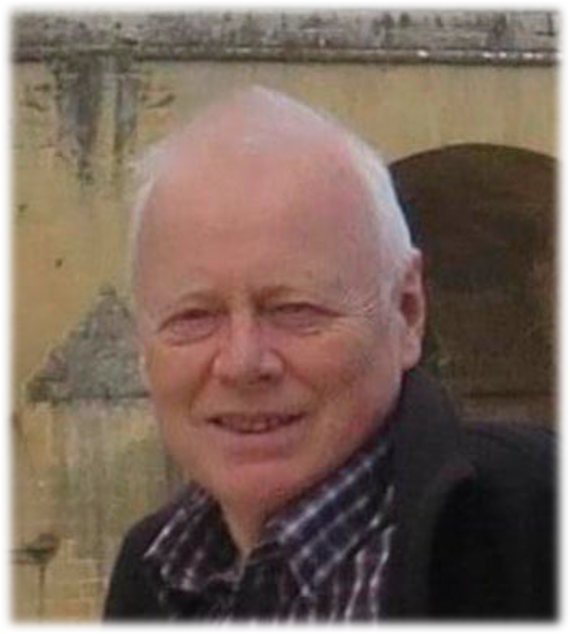
Gareth Leng, PhD
(Term: 2022 – 2026)
Emeritus Professor, Experimental Physiology
Centre for Discovery Brain Sciences, The University of Edinburgh
Honorary Member of the British Neuroendocrine Society and Fellow of the Royal Society of Edinburg
Gareth.Leng@ed.ac.uk
Emeritus Professor
Experimental Physiology
Centre for Discovery Brain Sciences, The University of Edinburgh
Honorary Member of the British Neuroendocrine Society and Fellow of the Royal Society of Edinburg
Gareth.Leng@ed.ac.uk
About myself and my experience in service to scientific communities:
After graduating in mathematics from the University of Warwick in 1974, I turned to neuroscience for my graduate studies, gaining my PhD in auditory physiology from The University of Birmingham in 1977. That year, Barry Cross, then the director of what is now the Babraham Institute in Cambridge, recruited me as a project leader for his own group in Neuroendocrinology. In 1994 I moved to Edinburgh to take up the newly established Chair of Experimental Physiology there, remaining there until my retirement in 2021. I have published more than 300 research papers, reviews and book chapters in the broad field of neuroendocrinology, including many on the oxytocin and vasopressin systems, but also papers on the regulation of growth hormone secretion, appetite regulation and the physiology of stress and reproduction. I was one of the founders of the British Society for Neuroendocrinology, I am a former Editor-in-Chief of the Journal of Neuroendocrinology, a former President of the International Neuroendocrine Federation. I have been a partner in numerous international research consortia and have served on advisory boards to research Councils in several countries. I have been involved extensively in activities related to public understanding of science, and have written two books aimed at a broad audience, both published by MIT Press: The Heart of the Brain: the hypothalamus and its hormones (2018) https://mitpress.mit.edu/books/heart-brain, and, with my son Rhodri Leng, The Matter of Facts (2020) The Matter of Facts https://mitpress.mit.edu/books/matter-facts
Commitment statement as a member of the IRPS Council:
In 2021 I retired from the University of Edinburgh, and was awarded the status of Professor Emeritus which allows me to continue some continued involvement with research, though this is remote as I have now moved to France. However, I hope that I still have some experience that may be of value to the community. My ability to travel long distances is now very limited, so if I am elected, my participation in meetings is likely to be limited to virtual engagement.
Secretariat statement on Society participation/contributions
– Founding member since September 25, 2018, in good standing
– Delegate and speaker of RegPep22 and RegPep23
– Main co-author of IRPS General Assembly resolution
– IRPS incorporated statutes main co-author
– IRPS Distinguished Membership since Nov. 2019
– Co-leader of Program Committee for Regpep22, RegPep23
– Chair of IRPS Legislative Committee for Statutes modification 2021
– Facilitator for RegPep22, RegPep23 grant applications to JNE/BSN
– Mentoring of IRPS Mexican student and young investigator members through videoconference (2019)
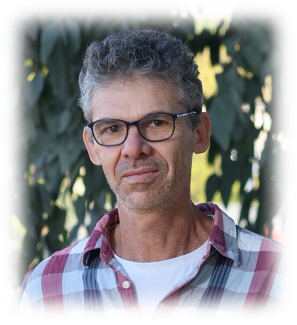
Gil Levkowitz, Ph.D.
(Term: 2021.01 – 2024)
Associate Professor,
Department of Molecular Cell Biology, Weizmann Institute of Science, Israel
email: gil.levkowitz@Weizmann.ac.il
Experience in service to scientific (peptide) community:
Scientific Organizing committee: 10th, 11th, 12th, 13th, 14th World Congress of Neurohypophysial Hormones; 10th International Symposium on VIP, PACAP and Related Peptides; Programme Advisory Committee:10th International Congress of Neuroendocrinology (ICN 2022) – International Neuroendocrine Federation; The 9th Congress of the Federation of the Israel Societies for Experimental Biology 2020 – Neuroscience and Endocrinology; International Scientific Committee: The 23rd International Symposium on Regulatory Peptides (RegPep2020-postponed); Co-Organizer: 13th World Congress on Neurohypophysial Hormones (WCNH2019).
Outreach and educational activities:
Executive board member, European network on Fish Biomedical Models (EuFishBioMed); Member of the Weizmann’s Life Sciences Board of Studies (2014-2020); Scientific Advisor, Student-Organized International Conference on Hormones and Behavior (2016). Book Editor, Model Animals in Neuroendocrinology (ed. M. Ludwig & G. Levkowitz). An open-ended series of books “Masterclass in Neuroendocrinology Series”, a joint venture between the International Neuroendocrine Federation (http://neuroendonow.com) and Wiley-Blackwell. Book was written by experts for students, trainees, established researchers, and teachers. Popular science manuscript: How does the brain talk to the body? In Fronteirs for Young Mind Science for kids, edited by kids: Freely available scientific articles by scientists describing cutting-edge discoveries in a language that is accessible for young readers by the input of their own young peers.
Statement of Commitment:
The foundations of modern neuroendocrinology date to the early 20th century when the pioneering work of Berta and Ernst Sharrer established the concept of neurosecretion using both invertebrate and vertebrate animal models. Since then, many findings in peptides biology have been extrapolated from animal models to human based on comparative anatomy, physiology, peptide biochemistry and more recently, molecular genetics and genomics analyses. My lab was one of the first labs to utilize zebrafish as a vertebrate model organism to study anatomy, development and function of the neuroendocrine hypothalamus. I will be fully committed to use my professional and organizational experiences to serve the mission of the International Regulatory Peptide Society. In particular, I would like to promote the use of non-mammalian model organisms to advance both basic understanding of regulatory peptide functions and their mechanisms of action and the translational implications of this understanding.
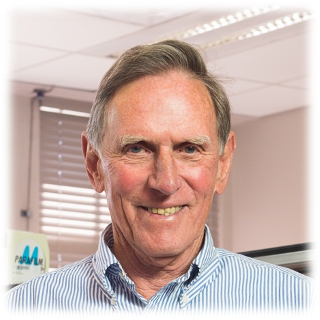
Robert P. Millar, Ph.D.
(Term: 2021.01 – 2024)
Professor, FRSE, FRSSA
Director Centre for Neuroendocrinology, University of Pretoria, South Africa
Senior Research Scholar, University of Cape Town
Senior Research Fellow, University of Edinburgh, UK
Professor Emeritus, University of St Andrews, UK
bob.millar@up.ac.za
Experience in service to scientific community:
Robert (Bob) Millar was the President of the International Neuroendocrine Federation until Summer 2020. Bob grew up in Zimbabwe and studied Zoology, Botany and Chemistry at the University of the former Rhodesia and Nyasaland. He then obtained a master’s degree in Biochemistry in London and a PhD in reproductive biology in Liverpool before moving into human biomedical research at the University of Cape Town where he became Professor ad hominem and directed four MRC Units. For twelve years he served as Director of the prestigious MRC Human Reproductive Sciences Unit at the University of Edinburgh, UK, and in 2011 he joined the University of Pretoria to take up the Directorship of the Mammal Research Institute (till 2016) when he took up his current position as Director of the Center for Neuroendocrinology. He has published over 400 peer reviewed articles which have been cited over 35,000 times and has an H-index of over 90 (Google scholar)
Statement of Commitment:
Bob has had a long history of research in peptide biology having isolated the first novel GnRH peptides, somatostain-28 and cloned the GnRH receptor as well as the type II GnRH receptor and pioneered the development of GnRH, Kisspeptin and NKB analogues which have gone on to enter the clinic and create new therapeutics for cancer, endometriosis, polycystic ovarian syndrome and hot flashes. He has worked extensively with Andrew Schally, Wylie Vale and Jean Rivier as well as others in developing the field. His research has involved a continuum of molecular and cell biology, structural biology, physiology, evolutionary biology of peptides, chemical design and synthesis in analogue development through to clinical application. This spectrum of knowledgebase is rare in this era of specialisation. In addition to a long involvement in academe and the development of young scientists he has worked extensively with Pharma and biotech in drug development. This breadth of expertise will allow him to contribute to the development of existing and new initiatives in the IRPS and particularly a closer relationship with pharma and biotech in the translation of regulatory peptide discovery into drug development. He believes that the advance of IRPS will be intimately connected to a strong relationship with industry both in the translation of peptide discovery and reduction to practice but also in the financial support of IRPS meetings. His extensive consultation for industry and founding of the biotech company, Ardana, position him to accomplish this for the IRPS. His credentials as an insightful contributor to the success and growth of IRPS are also in his organizational and leadership skills. He has been chair of numerous meetings including programme chair of the 2018 International Conference of Endocrinology, member of the US Endocrine Society programme organising committee and chair of the British Pharmacological Society’s James Black meeting amongst others. He was president of the International Neuroendocrine Federation until 2010. He will also bring communication and publication ‘know how’ to the IRPS to promulgate the outputs of the society through his extensive knowledge and experience as Editor in Chief of Neuroendocrinology where he increased the IF from 2.2 to 6.8 and his new role as Editor in Chief of the Journal of `Neuroendocrinology’s Translational and Clinical Neuroendocrinology arm which is the official journal of the IRPS.
Collectively the above credentials suggest he will be a substantial contributor as a council member of IRPS.

André de Souza Mecawi, DVM, PhD
(Term: 2022 – 2026)
Assistant Professor of Biophysics
Laboratory of Molecular Neuroendocrinology
Paulista School of Medicine
Federal University of São Paulo, Brazil
mecawi@unifesp.br
https://albanetwork.podbean.com/e/7-andre-mecawi/
Experience in the Regulatory Peptides field:
My research is dedicated to the study of the peptidergic systems regulating the hydromineral balance at the molecular and integrative levels, using techniques to evaluate gene expression, neuronal activity, and behavioral adaptations. In the past years I have worked for the organization of important international meetings, such as the symposium “Physiological and pathophysiological changes in the transcriptome: New targets for understanding autonomic regulation” during the 38th IUPS congress (2017, Rio de Janeiro – BR); the 12th World Congress on Neurohypophyseal Hormones (2017, Mangaratiba – BR); the Young Investigator Symposium during the RegPep22 (2018, Acapulco – MX); and the symposium “Functional regulation of subcortical peptidergic systems by sex-steroids” during the 39th IUPS congress (2022, Beijing – CN).
Statement of commitment:
It is my pleasure to offer my candidature to serve the IRPS as a council member for the upcoming four years period. I commit myself to work with passion and transparency and help to consolidate the IRPS as an active scientific society. As an IRPS council member, my goal is to contribute as follows: 1) work together with the other councilors and the executive body as a team to make our society well organized and strong; 2) divulge the IRPS activities through social media, helping the society to gain more international visibility; 3) get the young scientists working on the regulatory peptides field around the world affiliated and engaged in IRPS activities; 4) help in any process needed for the organization and success of the RegPep2024 and 2026.
Secretariat statement on Society participation/contributions
– Founding member since September 25, 2018, in good standing
– Delegate and speaker of RegPep22 and RegPep23
– Program committee member for RegPep23
– IRPS councilor Feb. 2019 – July 2022
– Co-author of IRPS-JNE manifesto published in JNE 2020
– Proposer for RegPep25 organization in Brazil
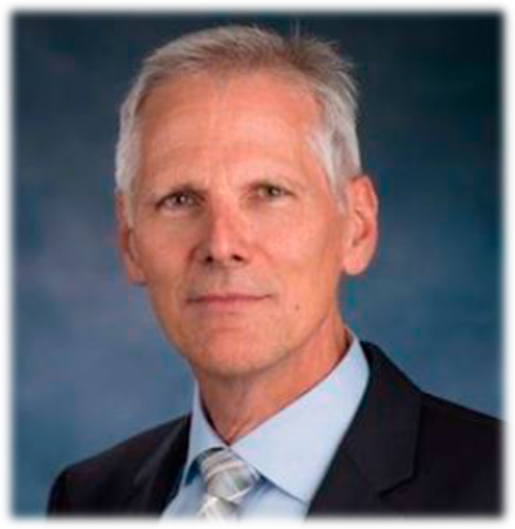
Geert de Vries, Ph.D.
(Term: 2022 – 2026)
Regents’ Professor and Chair,
Department of Biology, Georgia State University
Previous Leadership Position:
Director of the Neuroscience Institute and Associate Vice President of Research and Economic Development, both at Georgia State University; Director of the Center for Neuroendocrine and Head of the Behavioral Neuroscience Division, both at University of Massachusetts.
Past service to scientific community:
President of the Society for Behavioral Neuroscience (SBN) and the Organization for the Study of Sex Differences (OSSD); Member, and Chair of Theme E (Homeostatic and Neuroendocrine Systems), of the Program Committee of Society for Neuroscience; Meeting organizer for the 9th World Congress on Neurohypophysial Hormones, Boston, MA (WCNH 2011), the 7th Conference of Hormones, Brain, and Behavior, Torino, Italy, the 6th Annual Meeting of the Society for Behavioral Neuroendocrinology, Amherst, and the 13th International Summer School of Brain Research on Sex Differences in the Brain. Amsterdam, NL; Member of the Advisory Board for the Office of Research on Women’s Health, NIH, and the Institute of Gender and Health, Canadian Institutes for Health Research; Editorial Board member for Hormones and Behavior and Endocrinology; Member of the Study Section on Neuroendocrinology, Neuroimmunology, Rhythms and Sleep, NIH.
Statement of commitment:
Ever since discovering a sex difference in the vasopressin innervation of the brain as a graduate student, I have studied the development and function of sex differences in the brain. This culminated in proposing the idea that such differences can cause as well as prevent sex differences in overt functions and behaviors. I have also demonstrated that differences in vasopressin innervation depend on gonadal hormones as well as on direct sex chromosomal effects. Finally, my lab has mapped the distribution and traced the origin of vasopressin innervation in the rodent brain. My research has been consistently funded by NSF and NIH. As former President of the OSSD and the SBN, I have experience helping a young organization transform itself in a financially sound organization that puts up regularly scheduled meetings and fosters strong ties with funding agencies and biomedical organizations. The International Regulatory Peptide Society (IRPS) is a young organization that brings together basic and clinical researchers to study the role of peptides in regulating behavioral and physiological processes. Growing a community of enthusiastic and loyal participants in IRPS will require building a strong web presence and organizing consistently attractive and affordable meetings where students, postdoctoral trainees, and established researchers find a variety of opportunities to build a strong, interactive networks. As member of the council, I plan to collaborate with IRPS Officers and Council members in assuring that the Society organizes attractive meetings and develop additional programs to promote the field of peptide research.
Secretariat statement on Society participation/contributions
– Member since May 29, 2021, in good standning
– RegPep23 delegate, speaker and chair
– RegPep24 delegate, speaker and chair

Chun-Xia Yi, MD, PhD
(Term: 2021.01 – 2024)
Principal investigator /Associate Professor
Department of Endocrinology and Metabolism,
Amsterdam University Medical Centers, University of Amsterdam, The Netherlands
email: c.yi@amsterdamumc.nl
Experience in service to scientific communities:
I am serving as an editor for two peer-reviewed open-access journals: “Molecular Metabolism” (MolecularMetabolism); and “Frontiers in Endocrinology – Translational Endocrinology” and “Frontiers in Endocrinology – Cellular Endocrinology”. I am an organizer and co-organizer of several Dutch and international conferences: the “Dutch type 2 diabetes patient and researchers’ conversation day 2021”; the annual Dutch Neuroscience Meeting (Dutch Neuroscience Meeting) since 2018; the annual Dutch ImmunoMetabolism Network meeting (ImmunoMetNet) since 2019; the annual symposium of the Dutch Neuroscience Meeting in 2016-2021; the symposium of German Neuroscience Society, 14th Göttingen Meeting, 2021, and the XIV European Glial Meeting, 2021. I have served as a grant reviewer for UK-Canada Diabetes Research Team Grants; Foundation for Prader-Willi Research; Natural Sciences and Engineering Research Council of Canada (NSERC); Fond National de la Recherche Luxembourg (AFR); French National Research Agency (ANR) and Swiss National Science Foundation (SNSF). I have also served as a reviwer for more than 20 peer-review journals. I am a member of the International Regulatory Peptide Society, the Society for Research on Biological Rhythms, the Society for Neuroscience, and the Netherlands Association for the Study of Obesity. My research interests can be found Chun-Xia Yi group and Chun-Xia Yi AMC
Statement of commitment:
One of my major interests is the interplay between neuropeptides and brain innate immunity. There is an ever-growing interest in the research field regarding the association between neuroimmunology and neurological human diseases. My research group bridges basic and translational researches at the Amsterdam University Medical Centers and the Netherland Institute for Neuroscience. In the basic research line, I am exploring the important roles played by the brain immune cells in regulating brain peptidergic neurons that control the whole-body energy homeostasis. In the translational research line, I am focusing on studies on the neuropeptides with post-mortem human brain tissues donated by patients with metabolic diseases (Netherlands Brain Bank). I am new for the IRPS, but I feel an urgency to join IRPS and devote my passion and efforts in promoting the research branch on neuropeptides and brain innate immunity interactions. To achieve this goal, I will share my research resources within IRPS, I will seek opportunity to apply for join grants with other IRPS members, and support the exchange of research programs between IRPS members, especially I will offer opportunities for earlier career researchers in IRPS to join my research. I would also like to team up with other EU members to organize a future RegPep meeting in the Netherlands or elsewhere in Europe. I will help IPRS to get more attention from European scientific societies and other stakeholders.

Limei Zhang, MD, PhD
(Term: 2022 – 2026)
Professor of Physiology
Head, Lab. Systems Neuroscience
Department of Physiology, School of Medicine
National Autonomous University of Mexico (UNAM)
ORCID: https://orcid.org/0000-0002-7422-5136
President of the International Regulatory Peptide Society
Governing Council member of the International Brain Research Organization
email: limei@unam.mx
Experience in service to scientific community:
I co-found the IRPS on 2019-02-25, as an incorporated nonprofit civil association based in Mexico City; I was the Society’s previous Co-President (Feb. 2019 to August 2021) and the current President (August, 2021 to August 2022) and I am the Apoderado Legal (legal representative, together with Dr. Vito Hernández) of the Society. I have worked as the President of the Local Organizing Committee and Co-Chair for RegPep22 (2018), RegPep23 (2021) and RegPep24 (to be held in Scotland, August 2022); I have submitted more than 10 grant applications to government agency, public university authorities, international federations and scientific journals for the three RegPep meetings organization that all were successfully awarded. I am was an elected member of the University Council of the National University of Mexico (2016-2022), representing the faculty members of the School of Medicine, UNAM. I am currently a member of SfN committee. I have been Guest Associate Editor for Special issues of RegPep meetings of ANYAS, JNE, Frontiers in Neuroscience. I am currently a senior editor of the JNE (Fundamental and Mechanist Neuroendocrinology) and in the Editorial Board for JNE (Translational and Clinic Neuroendocrinology). I was the principal organizer of “International symposium on Dynamical Behavior of Complex Systems” and have chaired Symposia on Neuropeptides in Systems Biology topics for WCNH2017, PANAM1 (Pan-American Physiology Society, 2014) and FALAN1 (Federation of Latino-American and Iberic Neuroscience Associations, 2013).
Statement of Commitment:
I would like to nominate for re-election to the Council of IRPS to continue serving this society for which I co-found and I am holding currently the legal, financial and academic responsibilities. I was born in Beijing, China and traveled crossing continents to study in the UNAM, México, in 1979, due to a scholarship awarded by Chinese Government. I am married to a Mexican Theoretical Physicist, and I am mother of 3 children, who have grown up as good academics and artist. I am a Mexican neurophysiologist working for the UNAM for the last 28 years. I hold MD, MSc and PhD (Physiological Sciences) degrees from UNAM and completed postdoctoral training (Biomathematics) at Oxford University/UK (1992-1993). I have been long-term Visiting Professor to Oxford University, to NIMH/NIH Bethesda. I have also spent numerous research sojourns over the years, including to the Max-Plank Institute (MPImF), Heidelberg, NanKai University, Tianjin, and Univ. Castilla-La Mancha, Albacete; NIDA/NIH, Baltimore and have made numerous academic journeys to Brazil and Argentina. For the last 15 years I have continued the study of hypothalamic magnocellular vasopressin neurosecretory neurons’ fine anatomy and their ascending projections to limbic regions and behavior consequences for stress coping, prosocial and motivated behaviors. I have participated extensively in University and Scientific Society’s related issues, with relatively good knowledge on academic legislative, democracy procedures. I consider that my experiences across different countries, economic-political-cultural systems, can constructively promote the international understanding, co-operation, and translation for biomedical research, in an honest, humanistic environment. If I am re-elected as a councilor of the IRPS, I will do my best for the society with enthusiasm, honesty, and transparency to further the aims and objective of IRPS, stated in its Statutes. I will collaborate with the Council, and of course, I´ll be happy and collaborative in subjecting my works to the surveillance established by the Statutes.
Secretariat statement on Society participation/contributions
– Founding member since September 25, 2018, in good standing
– Delegate and speaker of RegPep22 and RegPep23
– Elected Steering Committee member, RegPep22-Nov, 2018
– IRPS funding Co-President (2019-2021)
– IRPS co-founder, co-legal representative and banking account co-holder (together with Dr. Vito Hernández.
– Main author IRPS incorporated Statutes
– IRPS councilor Feb. 2019 – July 2022
– Guest Editor of RegPep22 and RegPep23 special issues.
– Senior Editor of the JNE, IRPS official journal
– Co-Chair of the RegPep22 and RegPep23
– Co-Chair of Program-Organizing committee RegPep24
– Applicant or co-applicant of successful grants for IRPS-RegPep past two meetings:
CONACYT (RegPep22): 250,000 MexPesos
UNAM (RegPep22): 450,000 MexPesos
Elsevier (RegPep22): 3000 Euros
Frontiers (RegPep22): 4000 USD
IBRO-LARC (RegPep22): 3500 Euros
BSN-JNE (RegPep22): 5000 Pounds
UNAM (RegPep23): 125,000 MexPesos (co-applicant with Dr. R. Buijs)
INF (RegPep23): 1500 USD
IBRO-LARC (RegPep23): 3000 Euros
BSN-JNE (RegPep23): 5000 Pounds
UNAM (IRPS-RegPep 2019 workshop): 90,000 Mex Pesos (co-applicant, with Dr. V. Hernández)